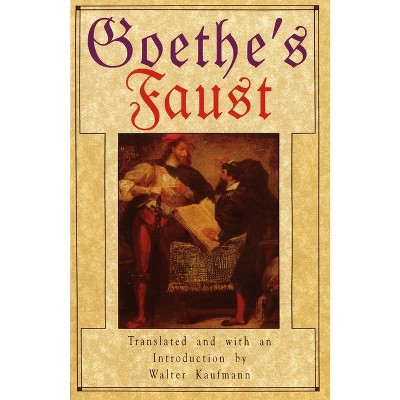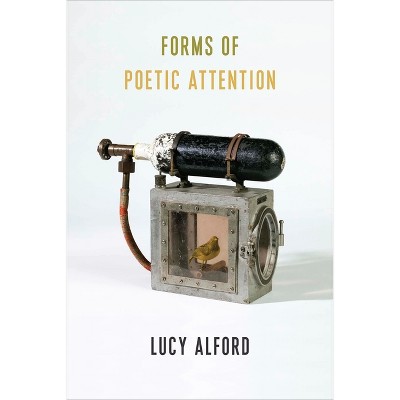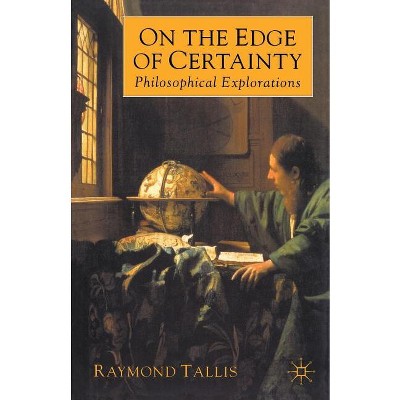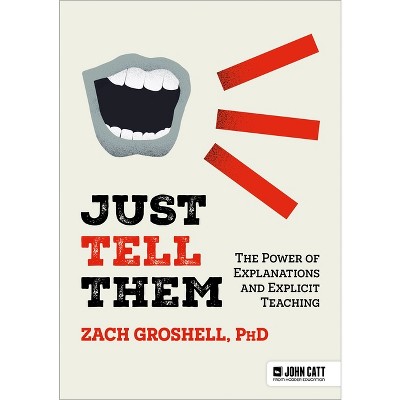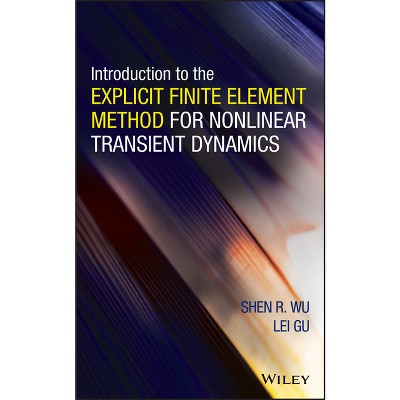Sponsored

The Explicit Animal - by R Tallis (Paperback)
In Stock
Sponsored
About this item
Highlights
- Criticizes attempts to "biologize" consciousness by explaining its origin in evolutionary terms and identifying mental phenomena with brain processes, to "computerize" it by identifying mind with the supposed computational activity of the brain, and to eliminate it by denying the reality of qualia.
- About the Author: RAYMOND TALLIS was recently described in The Times Higher Educational Supplement as 'one of the most intriguing figures in the current intellectual scene'.
- 313 Pages
- Philosophy, Mind & Body
Description
Book Synopsis
Criticizes attempts to "biologize" consciousness by explaining its origin in evolutionary terms and identifying mental phenomena with brain processes, to "computerize" it by identifying mind with the supposed computational activity of the brain, and to eliminate it by denying the reality of qualia.From the Back Cover
There has been an extraordinary resurgence of interest in the enigma of human consciousness among neuroscientists, psychologists and professional philosophers, for whom the philosophy of mind has displaced the philosophy of language as the central preoccupation. Much work is aimed at accommodating consciousness within the currently dominant physicalist world picture. The Explicit Animal is a comprehensive and sometimes impassioned attack on attempts to 'biologise' consciousness by explaining its origin in evolutionary terms and identifying mental phenomena with brain processes; to 'computerise' it by identifying mind with the supposed computational activity of the brain; and to empty or eliminate it by denying the reality of qualia. Raymond Tallis's critique concludes with a long look at man -- 'the explicit animal' -- that makes the irreducible mystery of human consciousness impossible to overlook or deny. Future attempts to eliminate or marginalise consciousness or to accommodate it to the physicalist world picture will have to answer the arguments of this book.Review Quotes
'There may be other professors of geriatric medecine who have chosen to write down their views on life, the universe and everything...Raymond Tallis is unusual in that he is philosophically well educated and alert; his books are genuine contributions to professional debate and must be assessed as such. It is, of course, acutely irritating that someone with a different professional competence should have read more widely, and more attentively, in one's own field than oneself; even more irritating that there are no obvious misreadings...It is to be hoped that Raymond Tallis finds time, amid his professorial and clinical duties, to continue the exploration.' - Professor Stephen Clark, Times Literary Supplement
From the reviews of Enemies of Hope:
'`Tallis....is a high achiever with a range of expertise that would leave Jonathan Miller gasping' - Walter Ellis, The Sunday Times
'As its title and length indicate, this is a Big Book. It is written, nevertheless, in aclear, accessible, unpretentious and often witty style. And as anyone familiar with Raymond Tallis's other similar works will know, it has important things to say....there is about his panoptic sweep an intrepidity, a candour and open-mindedness, a gameness for anything, a total lack of vanity or self-importance, and a generous hatred of cant, that are extremely engaging. Every page of Enemies of Hope is lit by its author's characteristic wisdom and luminous intelligence, and by flashes of novel, striking insight. That alone is as much as to say, read it.' - Robert Grant, The Times Literary Supplement
'Brilliantly argued and with a wide range of erudition' - Nicholas Kochan, The Financial Times
'There may be other professors of geriatric medicine who have chosen to write down their views on life, the universe and everything...Raymond Tallis is unusual in that he is philosophically well educated and alert; his books are genuine contributions to professional debate and must be assessed as such.' - Stephen R.L. Clark, Times Literary Supplement
About the Author
RAYMOND TALLIS was recently described in The Times Higher Educational Supplement as 'one of the most intriguing figures in the current intellectual scene'. Trained as a doctor at Oxford University and St. Thomas' Hospital, he has written extensively outside of medicine of the last 15 years. He has published short stories and poetry, and been recognized for his critiques of post-Saussurean thought, his reflections on art and science, and his discussions of the philosophy of mind. He was awarded an honorary degree of Doctor of Letters by the University of Hull in 1997 for his contributions to literary scholarship. Since 1987 he has been Professor of Geriatric Medicine at the University of Manchester and a consultant physician in Health Care of the elderly in Salford.Shipping details
Return details
Trending Philosophy






